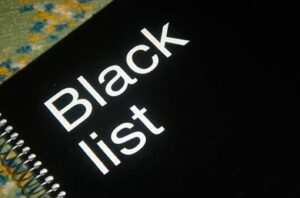Choosing the right accounting method can be a critical decision for the success of your business. There are two popular accounting methods: Cash-Basis and Accrual-Basis accounting. In this article, we will discuss the advantages and disadvantages of each method and help you determine which one is best for your business.
Cash-Basis Accounting
Cash basis accounting is a method that focuses on the actual cash flow of your business. This method records income when it is received and expenses when they are paid out. This method is easy to understand and implement, making it a popular choice for small businesses. It is the simplest method of accounting and widely used by small businesses. Here are the advantages and disadvantages of cash-basis accounting:
Advantages:
- Easy to understand and maintain, requiring minimal accounting knowledge.
- Cash flow is tracked effectively, giving you a clear picture of the available funds.
- Less complex, making it easier and cheaper to implement.
Disadvantages:
- Does not provide an accurate picture of long-term financial health, as it does not consider future expenses or revenues.
- Not acceptable for tax purposes, as the Seychelles Revenue Commission requires businesses to use Accrual-Basis Accounting.
- Not suitable for businesses with inventory, as it does not track inventory levels.
Accrual-Basis Accounting
Accrual basis accounting, on the other hand, records revenue when it is earned and expenses when they are incurred, regardless of when the money changes hands. Accrual-Basis Accounting records transactions when they occur, regardless of when cash is received or paid out. It is a more complicated method of accounting and widely used by larger businesses. Here are the advantages and disadvantages of accrual-basis accounting:
Advantages:
- Provides a more accurate picture of long-term financial health, as it considers future expenses or revenues.
- Acceptable for tax purposes in Seychelles, making it easier to comply with regulatory requirements.
- Suitable for businesses with inventory, as it tracks inventory levels.
Disadvantages:
- Requires more accounting knowledge and expertise, making it more complex to implement.
- Cash flow may not be as clear, as it does not track cash received or paid out directly. May result in discrepancies between the actual cash flow and reported revenue and expenses.
- More time-consuming and costly to implement, as it requires tracking all transactions.
- Can be more complex to understand and implement requiring more detailed record keeping and accounting expertise.
Choosing the right accounting method for your small business depends on several factors, including the type of business you operate, the size of the business, the complexity of your transactions, your regulatory requirements and and the level of financial reporting required by stakeholders such as investors or lenders. Ultimately, the choice between cash basis and accrual basis accounting will depend on the unique needs and goals of your business.
It is important to consult with a professional accountant who can provide expert advice on which accounting method is best for your business. With their guidance, you can make an informed decision that will help you better manage your finances and achieve your business goals.
At Victoria Chartered Certified Accountants, we offer comprehensive accounting services tailored to your business needs. We can help you determine the best accounting method for your business, ensure compliance with regulatory requirements, and maintain accurate financial records.
If you need help deciding the best accounting method for your business, contact Victoria Chartered Certified Accountants today to learn more about our services. We are an integrated full-service accounting, auditing, assurance, tax and advisory services firm based in Seychelles. We offer comprehensive, tailored and customer-centric services. Our experienced professionals take the time to understand your business goals and tailor solutions to support you. Your Success is Our Priority. Contact us today to learn more.





